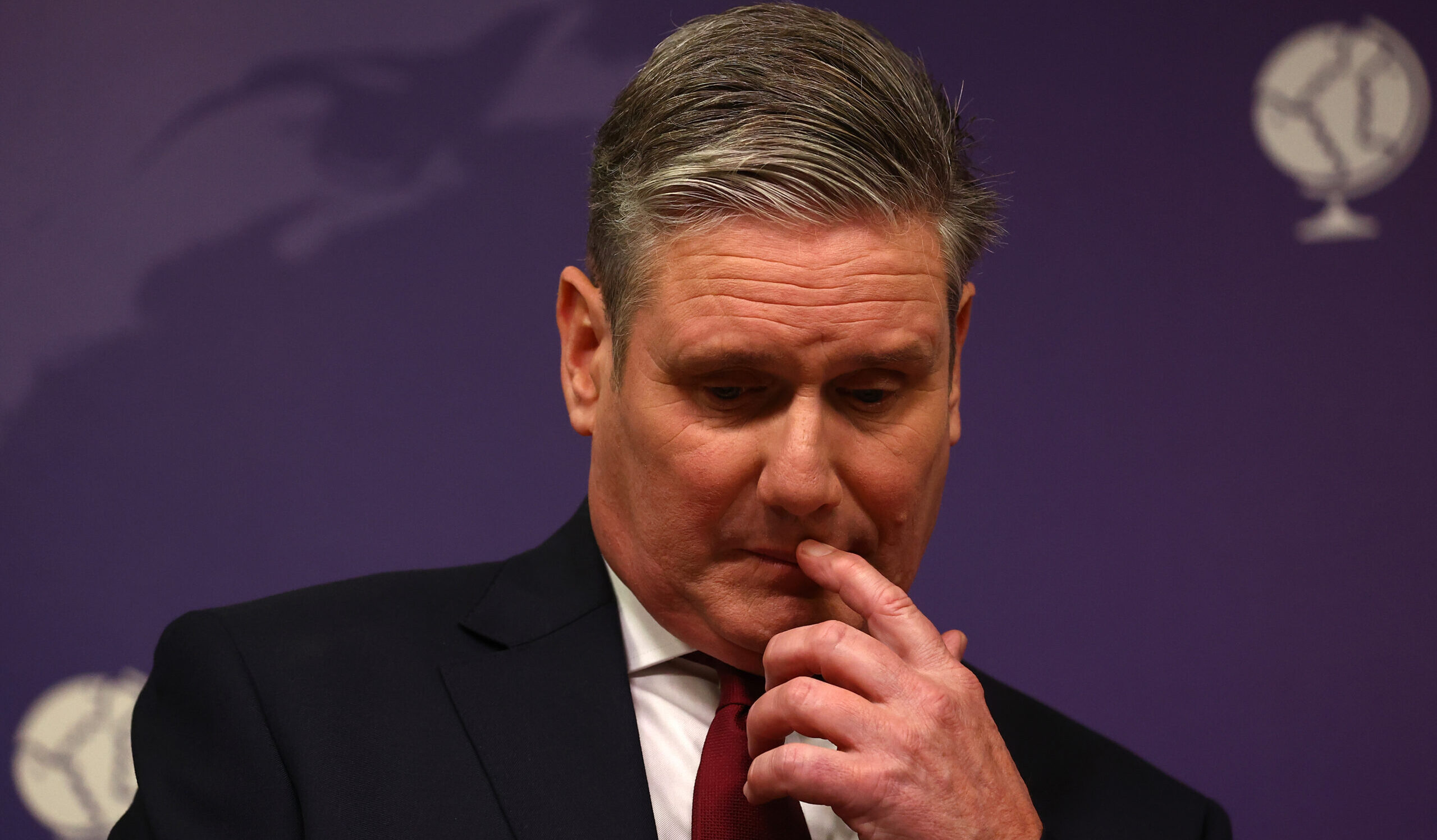Tony Blair is the Prometheus of modern Labour mythology. He won three consecutive general elections, stealing the knack of winning from the Tories. One can debate his legacy — at home and abroad — but he was undeniably a serial winner.
More overlooked is the 15-year period between 1964, when Harold Wilson formed his first government, and 1979, when Margaret Thatcher entered Number 10, during which Labour ruled for more than a decade. Tough circumstances — from currency devaluations to the oil crisis — arguably underscored political accomplishment rather than diminishing it.
So it is surprising that Keir Starmer, successor to both Wilson and Blair, should refer to such a period as a “stupor”. In a piece for the Telegraph at the weekend, aimed at wavering Tories, the Labour leader declared that moments of change begin “with the realisation that politics must act in service of the British people, rather than dictating to them”. Clement Attlee and Blair grasped this, he went on, but so did Margaret Thatcher. Indeed, it was the Iron Lady who sought “to drag Britain out of its stupor by setting loose our natural entrepreneurialism”.
Given Starmer has never started a business himself, one might question whether he believes this. Prior to politics he was a lawyer — as were David Lammy, Shabana Mahmood and Jo Stevens. Rachel Reeves, who hopes to be the next chancellor, was an economist. Pat McFadden became a party advisor straight after university, as did Yvette Cooper, Jon Ashworth and Lucy Powell. Thangham Debonnaire and Peter Kyle herald from the charity sector. With a few exceptions, the parliamentary Labour Party is a sea of lawyers, apparatchiks and third-sector bureaucrats.
This says a great deal not only about Starmerism, but also about the party more widely. Historically, Labour’s numbers were swollen by manual workers, as well as a wide range of middle-class professions. Ramsay MacDonald was the teenage farmworker who became prime minister; Ernest Bevin the labourer who would ascend to the office of foreign secretary. Yet Labour was also the home of the liberal-Left bourgeois, from the Webbs to Attlee and Mo Mowlam.
As recently as 1979, 40% of the party’s MPs had a background in manual or clerical work. By 2010, that figure had fallen to just 9%. But while it’s true Labour’s parliamentarians are increasingly middle-class, this fails to capture just how rarefied it is. There is, after all, little petit bourgeois presence in the party.
It is precisely this absence of a relation to small business which explains Starmer’s desire to signal his agreement with parts of the Thatcherite zeitgeist. Meanwhile, those who generally make the country work — public-sector employees, blue-collar workers, retail workers, tradespeople and, yes, small business owners — are missing. Labour can’t comprehend the politics of these voters, largely because it doesn’t recruit from within their ranks.
The Labour Right’s charade as businesspeople, and Starmer’s veneration of Thatcher, suits a certain fragment of internationally-minded capital. For corporate multinationals, the Financial Times and the City of London, it is useful that Labour — as the party of Walter Mitty capitalists — associates business with the FTSE 250, Linkedin “consultants”, major supermarkets and financial services.
That is certainly preferable to a party which not only seeks to improve the conditions of workers, but which grasps that there is more than a single, monolithic “business interest”. Something which might benefit Amazon, Uber or Tesco can obviously be to the detriment of a family-owned business on the high street. To the layperson that is obvious, yet the Labour Right dismisses such an idea as Left-wing nonsense.
There is a major difference between the larping of Gordon Brown, who told the CBI three decades ago that business was “in his blood”, and Starmer today. That is because, unlike the mid-1990s, when Britain’s underlying growth model was strong, the country has now endured almost 16 years of stagnant productivity. Cosplay is fine when you just need a frontman for a system that runs itself, as was the case before 2008. The opposite holds true at times of crisis and chronic national decline.











Join the discussion
Join like minded readers that support our journalism by becoming a paid subscriber
To join the discussion in the comments, become a paid subscriber.
Join like minded readers that support our journalism, read unlimited articles and enjoy other subscriber-only benefits.
Subscribe